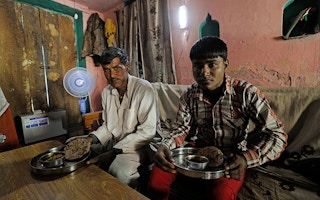Access to energy does not automatically improve the socioeconomic conditions of rural households, says a study conducted in India by US and Canadian researchers.
A year after installing a solar-powered microgrid, the socioeconomic conditions of communities in a remote district of northern India remained largely unchanged, says the study, published 17 May in Science Advances.
However, the study concedes that access to a microgrid did reduce expenditure on kerosene fuel for 1,281 rural households in the Barabanki district of Uttar Pradesh state.
“We wanted to understand what kind of effects microgrids have,” says Michael Aklin, political scientist at the University of Pittsburgh, United States. Aklin and his colleagues opted to study a solar microgrid that did not benefit from subsidies. “We wanted to see what happens under the toughest financial conditions,” he says.
The researchers also believe that the availability of kerosene at highly subsidised rates dampened the impact of the microgrid. “If the kerosene subsidy were removed or replaced with a solar subsidy, many more people would be using solar power and we might see greater impacts at the community level,” says Johannes Urpelainen, co-author and political scientist at Columbia University, United States.
“
If the kerosene subsidy were removed or replaced with a solar subsidy, many more people would be using solar.
Johannes Urpelainen, Columbia University
Though the study was conducted in India, the findings are relevant to other countries as well.
“Small systems that provide lighting can improve the quality of life, but economic development may require complementary interventions such as livelihood creation or larger systems that allow households to use appliances and machinery,” says Urpelainen.
Debajit Palit, associate director at The Energy and Resources Institute, India, says it would be inappropriate to generalise that basic access to energy does not produce socioeconomic benefits. “While small-scale solar projects enhance social life, accrual of economic benefits depends on whether a project is designed for that purpose,” he tells SciDev.Net.
According to Palit, improving socioeconomic benefits requires non-energy inputs such as institutional support, affordable and timely finance, continuous impetus on training, market linkage and supply of good quality raw materials that are essential for promotion of micro-enterprises or productive use of electricity.
“Electricity is an enabler and not a sufficient condition to produce large socioeconomic benefits,” says Palit, who did not participate in the study.
The study itself notes that areas with more potential for rural business development than Barabanki could generate different results.
This piece was produced by SciDev.Net’s Asia & Pacific desk.
This article was originally published on SciDev.Net. Read the original article.










